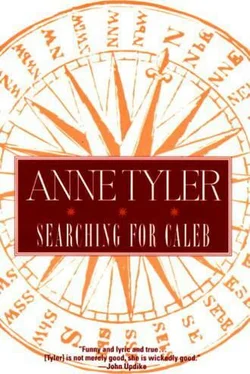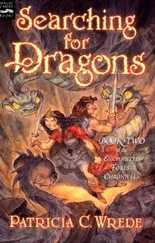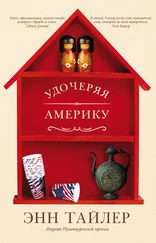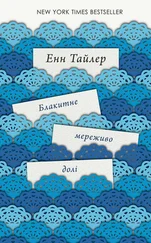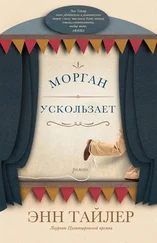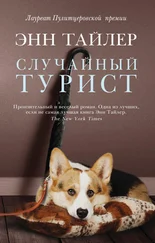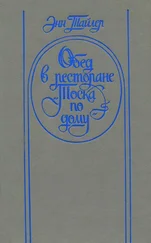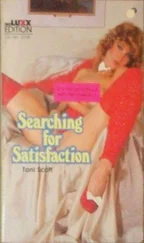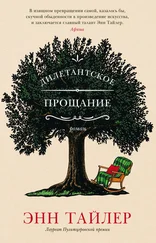“Lucy? I didn’t remember Daniel had a Lucy.”
“Lucy is Two’s wife, Caleb. I told you that.”
“Ah yes.” He nodded. “It must be hard trying to keep all this straight.”
“I don’t have to try . They’re family. Now, what was I telling you about Aunt Lucy?”
“You said — who did you say she was?”
So that she grew exasperated. “Don’t you have any memory? ” she asked him. “Don’t you feel any connection at all?”
“Memory, yes. Connection, no.”
She believed him. At night, tossing in her bed, she told Duncan, “We might as well have picked a stranger off the streets.”
“What makes you think so?”
“He’s not connected, he says. He admits it. That scroungy old man — if he had written a letter when he should have I bet Grandfather would be alive today. He doesn’t have a trace of the family left in him and he tells me so as if he’s proud of it. He doesn’t have a trace.”
“He does, though.”
“What are you talking about?”
“Oh, use your head, Justine. Who do you know who acts more like a Peck? Consider that he has remained alone his whole life long, never let in anybody who wasn’t a blood relative. Never got close to White-Eye, never married that waitress, never was a father to Roy. Can’t you read between the lines? Look at what Luray said: it’s not as if he were a real relation. You say the Pecks haven’t left a trace?”
“You don’t know the first thing about it,” Justine said. “Of course he didn’t get close to White-Eye. He was careful and respectful. He had tact .” And she would flounce over on her side away from him, preparing for another night of insomnia.
Then the next afternoon, facing Caleb, who wore his brother’s pinstriped shirt, she was full of new hope and energy. “I think you’re going to like my cousin Claude,” she told him.
“Oh yes?”
“He collects engravings. He’s the only one besides you who’s interested in the arts.”
But, “I believe I’ll make coffee out of some of those beans, Justine,” he said. Then she would notice how metallic his eyes were, and how there was something raw and uncared-for about his skin, which was stretched too tightly across the bridge of his nose.
He had taken over the kitchen by now, as if he guessed how she felt about cooking. (The first supper she served him was hot dogs scorched in a skillet.) He prepared every meal so seriously and so tenderly that it tasted like a gift. “Eat it all,” he told them at suppertime. “If you don’t finish it, how can I make more? I want to get started on something new.” He would hum as he worked, clattering pots, cursing the scarcity of equipment. “But that’s all right, I can make do with anything. Put me in the pokiest diner and I will cook you up a seven-course meal. Why did I ever retire? I let Luray talk me into it. Here I’ve been thinking I had no means of support, but I do! I’m going to get a job and contribute to the household, I have it all worked out.”
But even Duncan looked doubtful when he heard that. “Well, look,” he said. “I wouldn’t want to discourage you, but age might stand in your way, don’t you think?”
“Never mind my age,” said Caleb. “Oh, for the quality places, yes. But there is always some little café by the tracks or the water where they don’t give a hang, and that’s where I’ll ask.”
“Well, at least why don’t you wait a little. If we move or anything, you don’t want to go through a whole new job application.”
“But we’re not moving,” said Justine.
“Oh, no hurry,” Caleb said. “I play it by ear. I wait to see what falls out and who is going in what direction. I always have.” He smiled. “It’s funny,” he said, “I’d forgotten the taste of garlic. Can you beat that? It’s peculiar how you associate some foods with people. Or times you used to have, or places . . . Bess always liked garlic-buttered popcorn. The two of us must have eaten bushels of it. Now you could bring me some and I don’t know, it would taste so unfamiliar somehow. I suppose everybody’s like that. Best friend I ever had liked Blue Peter sardines on saltine crackers, but maybe if I were to track him down today I’d find he doesn’t even remember them any more.”
Duncan listened so hard he forgot to eat. Justine slid a salt shaker back and forth. Why did Caleb have to talk about food all the time? No one else in the family did. All they asked was that their meals be nourishing, and not too unusual in taste. They tended to like white things, foods baked in cream sauce. They would have been horrified by the peppery shrimp casserole that Caleb had served tonight. “Listen!” Justine said suddenly. “How can we be sure you’re Caleb Peck?”
Both men stared.
“How do we know you’re not some impostor?”
“Justine,” said Duncan.
She ignored him. She was watching Caleb. “But who else would bother?” Caleb asked her.
“You’re not like them in any way.”
Caleb shrugged. (A foreign gesture.) “For that matter,” he said, “how do I know you’re a Peck?”
“We’re not even sure that Eli’s honest,” Justine said. “Maybe he just picked up some stranger and coached him. Maybe the two of you framed this whole story together. After all, there must be money involved. Caleb’s share of the will must have been drawing interest for sixty years.”
“Caleb didn’t have any share of the will,” Duncan told her. “Justine, I wish you would—”
But Caleb only nodded, sober and proud somehow, as if he were receiving compliments.
* * *
In the night there was a pounding on the door, and shouting and the beam of headlights across the bedroom ceiling. Justine, wide awake as usual, crawled over Duncan and threw a bathrobe around her shoulders. “Just a minute,” she called. Duncan stirred and then sat up. From Caleb’s room came the rustle of bedclothes. Justine ran through the hallway, breathless and shivering. Someone had died. Something was wrong with Meg. She had never realized how many possibilities there were for disaster, or how calm and joyous her life had been until this moment.
But it was only Tucker Dawcett, whose wife had her fortune told weekly to see if he were faithful and never believed it when the answer was yes. Tucker was just a sweet skinny man with buck teeth. He jogged in a sweatsuit every morning and worked as a, let’s see—
Policeman.
Her teeth started chattering again.
Tucker coughed, and then showed her his identification in a plastic envelope. (Why on earth?) For all she knew it was his YMCA card. “Oh. Tucker,” she said.
“Could I speak with you a moment, Justine?”
From the hall doorway, Duncan said, “Do you know what time it is?”
“Police business,” said Tucker.
Duncan came up behind Justine without a sound.
“Now I have to ask you folks this question,” Tucker said. “Are you all related to a Mr. Caleb Peck?”
“You get us up at one a.m. to ask us that?” Duncan said.
“Now I know, I know how trying this must be,” Tucker told him. Through the screen his face looked grainy; out of tiredness or embarrassment he kept his eyes down. “Fact is I was sacked out at home myself. Doug Tilghman called from the station asking me to run this little errand. I wanted to wait till morning but he said we would look pretty silly if Louisiana called back in a couple hours and we hadn’t done a thing.”
“Louisiana?” said Duncan.
“See they got this lady down there claiming a Mr. Caleb Peck has been kidnapped.”
Duncan looked at Justine.
“Seems like he was in a home of some sort. This lady, Mrs. Luray Pickett, went to visit him last Sunday and found he’d disappeared. Home hadn’t noticed. Seems somebody at the office remembered a Justine Peck come from Caro Mill to visit him, and he was never seen again.”
Читать дальше
